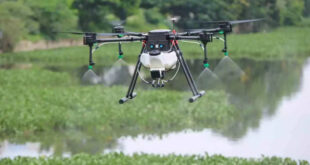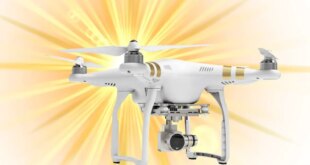Drones are shaping the way business is done across a variety of sectors and a number of insurance companies have already started to use drones to assess damages and claims, says Vera Nagtegaal, executive head of comparison site, Hippo.co.za.
Nagtegaal said that insurers have already been experimenting with drones – or unmanned aerial vehicles (UAVs) – for about five years.
“In the United States, for example, the FAA loosened regulations on drones used commercially and, as a result, many insurers started using them as a way to assist in building risk profiles and assessing claims,” she said.
In South Africa, Old Mutual iWYZE passed the operational audit and demonstration flights required by the South African Civil Aviation Authority (SACAA) and is now in the process of obtaining its remotely piloted aircraft licence.
Once complete, the drones will be used in the assessment of car accidents, it said.
Christelle Colman, an insurance expert at Old Mutual Insure, said that Old Mutual iWYZE will expand its drone operations and deployment in the group over the next few years, with the company hoping to use the technology across a variety of applications.
“We’ve identified exciting opportunities which hold the potential of significant cost savings and return on investment in our domestic assessment, surveying and agricultural business units,” said Colman.
“In addition, our commercial drone deployment will act as a catalyst for job creation as we will need more licensed employee drone pilots, technicians and safety and security managers in our major regions.”
Claims
Nagtegaal said that insurance fraud can also be limited if drones are employed effectively.
Insurers will be able to capture aerial images of properties when policies are taken out, and these can be compared to drone camera images after any damage has occurred. Doing so, ensures that policyholders do not claim for existing damage to property, she said.
“As with any advancement in insurance, the introduction of drones will serve to reduce false claims and expedite claims processes, which will contribute to the long-term efficiency and cost-effectiveness of the industry,” said Nagtegaal.
“While the costs of establishing a functional drone service will be borne by insurance companies, this is the price of progress.
“I do believe that this benefit everyone in the insurance value chain, including the employees who no longer have to place themselves in dangerous situations to assess damages.”
Read: Here are top tech trends to look out for this year
 Unmanned Aerial Vehicle The latest drone news
Unmanned Aerial Vehicle The latest drone news


